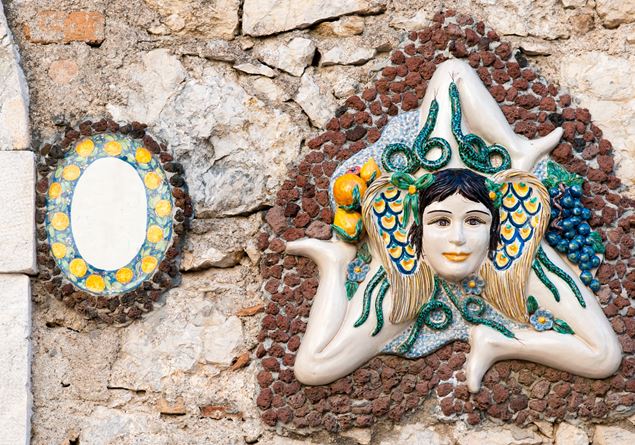Except Guglielmino.
By courtesy of the publisher Rubbettino, we publish the introduction of the investigative essay The other South. Stories of everyday heroes by Salvo Guglielmino, journalist, writer and national information manager of the CISL dedicated to the South and its potential.
by Salvo Guglielmino
Every time I happen to review the images of Trip to the Souththe famous investigation by Sergio Zavoli, which aired for five episodes from January 1992 on Rai Uno, I wonder whether the economic and social conditions of the South have improved or not in the last thirty years.
In fact, scrolling through the data on family income, or taking living conditions as a reference, unemployment, social inequalities, the level of education, infrastructures, services, civil liberties, on each of these essential factors, remain the historical delays of the South are still evident, not only from the rest of the country, but above all from Europe. Not to mention the climate of illegality and criminal blackmail which in the South proliferates underdevelopment and poverty, continuing to condition and control large swaths of the territory and the southern economy.
In the last twenty years, approximately two and a half million people have left the southern regions, mainly young people and highly educated women. In the next fifty years it is estimated that the southern population will go from the current 19.8 million to around 12 million, with a decrease of forty percent. In the eight regions of Southern Italy there will be fewer and fewer children, fewer and fewer students, and fewer and fewer men and women who work. Entire cities and extraordinary villages in the internal areas will disappear. A mass emigration, similar to that of the early years of the last century. Unfortunately, there is still too little talk about it.
It is a picture linked, inextricably, to the evident difficulties in finding a safe, quality and well-paid job, to insufficient public and private investments, a poorly modernized public administration and to delays in the planning and construction of public works, to the inadequacy of networks water, electricity and digital, to the insufficiency (in some cases non-existence) of high-speed trains, motorways, airports, watermakers, waste-to-energy plants, widespread and efficient health and social welfare services.
However, if the situation remains problematic, not everything is so hopelessly still and immobile in the South.
In recent years, thousands of companies, small and large, have been created in all production sectors, as well as many young start-ups, demonstrating that in Southern Italy it is possible to invest and reach high levels of innovation, quality and competitiveness, thanks to the decisive contribution of millions of southern workers.
The active and supportive network of many expressions of civil society has extended even further, made up of trade unions, associations, sports clubs, the third sector, social cooperatives, thousands of people of all ages who work together with schools and parishes in Southern Italy with courage, against illegality, the social degradation of the suburbs, school abandonment, marginalization, exploitation of work. This is the true wealth of our country. It is what the sociologist Giuseppe De Rita defines as the middle society, arguing that “it is not the economy, nor the intervention from above that creates development, but the social action that starts from the bottom”. “Everyday heroes”, to use an expression dear to the Head of State, Sergio Mattarella, who fight, every day, in the territory for the social redemption of the southern regions. With generosity, humanity, hope.
The cover of the investigative book “The other South. Stories of everyday heroes” (Rubbettino).
In short, there is a positive South, an industrious and dynamic reality that is not enchanted by the sirens of politics, by new populisms or by useless revanchisms, by those who, often in a benevolent manner, promise more welfare, unrealistic recipes, reverse Northern Leagues or nostalgic returns to a nationalization of production.
This is why in this story of mine, an intimate and personal journey, I have tried to give voice to another South. A new, fast, transparent world, which in the last decade has taken over the old. A galaxy that believes in sustainable industry, quality agriculture, the great potential of tourism, crafts and the tertiary sector as a great opportunity, which knows how to enhance local products, architectural and landscape heritage, popular traditions.
The old refrain of whiny southernism is of little use, of those who wearily preach that the responsibility for the ailments of the South lies with the governments that have followed one another over the last seventy years. Or worse than those who rhetorically repeat the old accusatory thesis: “It was the southerners who didn’t know how to grow, but the fault lies with the northerners who exploited them.” They are clichés, useless leopardisms, cold sociological analyses. Instead, we need to turn the page, valorise the excellence and the positive and irrefutable signs of growth in the South in terms of GDP, exports, stable employment, international tourism, urban regeneration, technological innovation and the vitality of the university system. These are all indications of a possible improvement in the competitive capacity of the southern economy, as important independent institutions such as the Bank of Italy, Istat and, last but not least, Svimez have been able to grasp. But it is necessary to stimulate institutions, parties and social bodies to team up and collaborate with responsibility and trust to give continuity to the economic and social development of this geographical area which is now increasingly central in Europe and the Mediterranean. We must encourage Italian investments and attract foreign capital, plan and spend national and PNRR funds well, exploit the opportunities of the single SEZ, enhancing the indispensable role of negotiation.
Before talking about the implementation of the Constitutional principle of differentiated autonomy, it is necessary to guarantee the essential levels of services, social benefits and infrastructures, uniformly from Aosta to Lampedusa.
In short, achieving that “national cohesion”. Sergio Mattarella has spoken about it many times with seriousness and determination. Because without stable growth in the South, Italy will never have the rate of expansion necessary to compete with other countries and reduce the burden of its public debt.
To do all this, we need to allow people to stay in the South and have children, invest in training and immense human capital, give those who want to live in the places where they were born the opportunity to have a decent, regular job and well paid. To offer the opportunity to return to those who have left, or to attract, with the right conditions, those who are looking to invest in the South. This is the new southern question today. It is a difficult but necessary challenge, which requires a strong propensity for change. And a great responsibility for a common goal: uniting our country, building a better future. For everyone.








